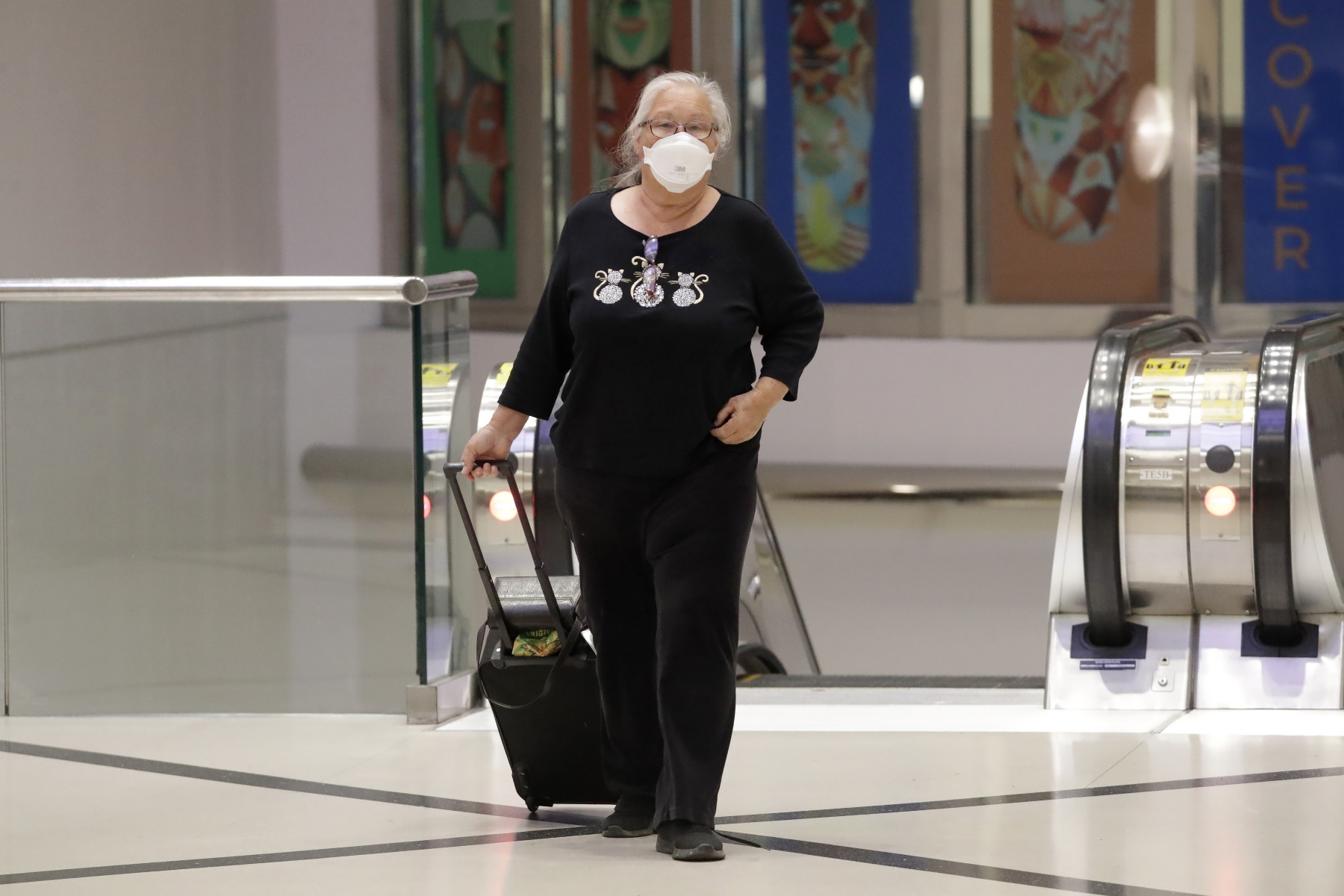Georgia’s Economist Discusses The Pandemic’s Impact On State Budget

Jeffrey Dorfman, the state’s fiscal economist, said Georgia will likely have a much clearer picture of the impact of the coronavirus pandemic on revenues in the next few weeks.
John Bazemore / Associated PRess
Jeffrey Dorfman, the state’s fiscal economist, is tasked with forecasting Georgia’s revenue collections, which form the basis for the state’s budget. That job, he said, has become “pretty much impossible,” given the current economic uncertainty.
WABE’s Emma Hurt spoke with Dorfman about that task and how the coronavirus could impact the state’s budget. He said federal relief very well might mitigate the necessity of budget cuts, and cautioned Georgia will likely have a much clearer picture of the impact of the pandemic on revenues in the next few weeks.
Find the full audio of the interview attached and an excerpted transcript below.
Emma Hurt: Tell me about the work of the economic impact subcommittee you serve on, on Gov. Brian Kemp’s Coronavirus Task Force. What are you all talking about as we speak?
Jeffrey Dorfman: We’ve been working on what industries should be on the list of essential industries in Georgia that we need to keep open, trying to come up with ideas for how to help all Georgia businesses and citizens keep our economy going as best we can and how to implement policies in a way that doesn’t have negative unforeseen consequences.
We’ve managed to avoid some things and to correct some things. We’re not going to get it perfect because things are just moving too fast. And because the reality is there’s going to be some economic damage. We can’t respond to the public health situation effectively without causing some damage to the economy. So we’re trying to minimize it as best we can, but we have to accept that there is going to be some economic pain that goes with this.
EH: How bad are things right now?
JD: So we don’t really know. The interesting thing is the Georgia economy was in great shape when this started. We had record-high employment, record-low unemployment, and state revenue collection through Friday was still in very good shape. And that’s because there’s sort of a lag. You know, we’re getting money coming in from sales tax in February and income tax withholding from a couple of weeks ago. So this week and next week, we’ll really just start seeing the first of the impacts. So we’re still kind of guessing and thinking we know what’s going to happen, but we’re not really sure yet.
EH: When you talk about the subcommittee work and that balance that has to be struck between the economic pain and the public health necessity, how do you possibly come to a balance on that?
JD: I think what we’re trying to do is make sure we’re not trading off economic policy and public health policy. So we’re going to do what public health policy says needs to be done. But once we’ve decided that we have to take an action, we’re going to try and implement it in a way that doesn’t do any unnecessary economic damage.
EH: At what point did you really grasp that this was going to be kind of an economic stop, not an economic recession? What point did you grasp how bad the coronavirus situation would be for our economy?
JD: We’ve been preparing for a month and a half or two months, I think. I don’t know if we saw right away how long it was likely to last. Originally, I started preparing scenarios like, OK, what if we’re shut down for two weeks? What if it’s a month? What if it’s two months? Now we’re looking at, is it two months or four months or six months? I’m not worried about two weeks anymore.
EH: What does this mean for the state’s budget?
JD: The Legislature passed the amended budget and the governor has signed it. So that is our budget for the rest of the year. I don’t anticipate any big changes in that. And I think the working assumption is that aid from the federal government will help cover extra spending needed on the coronavirus mitigation and hopefully make up lost revenue for the FY 2021 budget. That’ll start on July 1.
We’re thinking, we’re planning, we’re watching. But I think we all want to see more data and get a better feel for how long things are going to last and exactly how much it’s going to get shut down before we worry too much about next year’s budget. … So I anticipate that we won’t really need to do big budget cuts as long as we get money to the states, from the federal government, and that that aid will be on the way soon.
EH: Something I’ve heard is that because this is such a strange kind of recession, the recovery would be pretty quick. Are you anticipating that as well?
JD: I am. I really think this is a temporary blip. the economy was very strong before this started. I don’t think this will permanently affect consumer confidence or people’s spending behavior, except in a few specific instances….
But, you know, I think it will take less time than people think for that stuff to come back. I think a lot of things will come back quickly. I mean, workers that are staying home now can’t really go get another job. So when we do open back up, I think they’ll generally be able to go back to their old jobs. And I’m hopeful that we’ll be able to pretty much pick up where we were.








